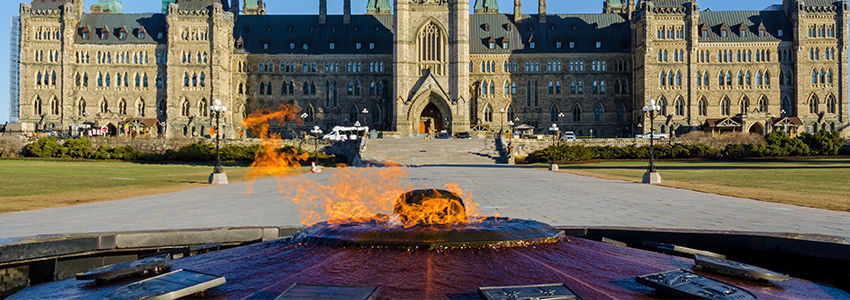To address Canada’s current housing crisis, the federal government introduced new housing policies and measures that have come into force or will in 2023. With so many changes it can be hard to keep up with it all. That’s why we’ve compiled everything you need to know before kicking off 2023.
On April 7, 2022, Deputy Prime Minister, and Minister of Finance, the Honourable Chrystia Freeland tabled A Plan to Grow Our Economy and Make Life More Affordable. Within the budget, the federal government committed to several initiatives including:
First-Time Home Buyers’ Tax Credit (HBTC)
Coming into force: 2022 and subsequent taxation years.
Budget 2022 proposes to increase the amount used to calculate the First-Time Home Buyers’ Tax Credit to $10,000 (from $5,000), which would provide a tax credit of up to $1,500 to eligible home buyers. This amendment applies to the 2022 and subsequent taxation years.
More details from the Canada Revenue Agency can be found here.
Two-year Ban on Non-Canadians Purchasing Residential Property
Coming into force: January 1, 2023.
The two-year ban on non-Canadians purchasing residential property comes into force on January 1, 2023. The federal government released the regulation on December 21, 2022. Regulations includes definitions, exceptions, and enforcement elements to help individuals understand and comply with the law.
Please consult our News2Me article for more information.
Multigenerational Home Renovation Tax Credit
Coming into force: January 1, 2023.
The Multigenerational Home Renovation Tax Credit is a refundable credit that allows families to claim up to $7,500 to build a secondary unit in their home to accommodate seniors or adults with disabilities. Any expenditures to be claimed should be incurred after January 1, 2023.
The home may be owned by the senior (65+) or an adult with a disability, a family member, or a trust. The qualifying individual or their cohabiting spouse or common law partner can claim the credit, and so can a qualifying relation. The secondary unit must be a self-contained housing unit with a private entrance, kitchen, bathroom and sleeping area. It should be inhabited within 12 months of its renovation/construction ending. The credit does not cover recurring repair and maintenance, appliances or housekeeping.
Full details from the Government of Canada can be found here.
Residential Property Flipping Rule
Coming into force: January 1, 2023.
Budget 2022 proposed to introduce a new rule to ensure profits made from flipping residential real estate are subject to full taxation. Specifically, profits arising from dispositions of a residential property (including a rental property) that was owned for less than 12 months would be deemed to be business income.
Bill C-32 defines ‘flipped property’ as: “a housing unit of a taxpayer located in Canada that was owned by the taxpayer for less than 365 consecutive days (less than a year) prior to the disposition of the property”. The measure would apply in respect of residential properties sold on or after January 1, 2023.
Full details from the Government of Canada can be found here.
Tax-Free First Home Savings Account (FHSA)
Coming into force: April 1, 2023.
The Tax-Free First Home Savings Account (FHSA) is designed to give first-time home buyers the ability to save $40,000 on a tax-free basis with an annual contribution limit of $8,000. The government is working with financial institutions to have the infrastructure in place for individuals to be able to open an FHSA and start contributing at some point in 2023.
Chartered Professional Accountants of Canada says Canadians can begin contributing to the FHSA in 2023 even though the rules don’t come into effect until April 1, 2023.
Full details from the Government of Canada can be found here.
Measures that came into force in 2022
Assignment Sales – Goods and Services Tax/Harmonized Sales Tax (GST/HST)
Came into force: May 7, 2022.
Budget 2022 proposed an amendment to the Excise Tax Act (ETA). The proposed amendment would make all assignment sales, including those made by individuals, in respect of newly constructed or substantially renovated residential housing taxable for GST/HST purposes. The proposed amendment applies to all assignment agreements entered after May 6, 2022.
Full details from the Canada Revenue Agency can be found here.
Underused Housing Tax (UHT) Act
Came into force: January 1, 2022.
The Underused Housing Tax (UHT) is a 1% annual tax on the value of residential real estate owned by any non-resident, non-Canadian that’s considered vacant or underused. The application of the annual tax began on January 1, 2022, which means that certain residential property owners in Canada will be required to file UHT returns for the 2022 calendar year by April 30, 2023.
The purpose of the tax is to reduce upward pressure on housing prices and increase housing availability, by discouraging foreign ownership of Canadian residences as an investment and encouraging owners to either put properties on the rental market or sell those properties to Canadian residents to live in, rather than leaving them empty.
Full details, including exemptions, can be found here.
OSFI confirms no changes to stress test
On December 15, 2023, the Office of the Superintendent of Financial Institutions (OSFI) announced it will not be making any changes to the stress test. OSFI has also announced that they will launch a review of Guideline B-20 for uninsured mortgages qualifying rate in January 2023, which CREA intends to participate in.

